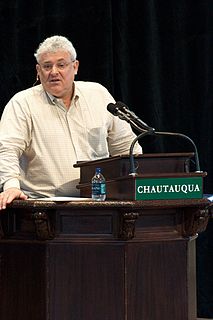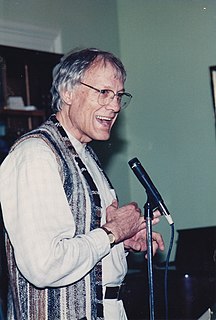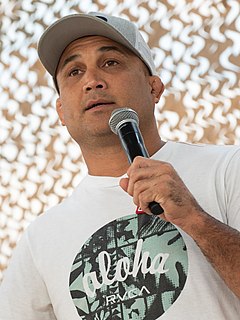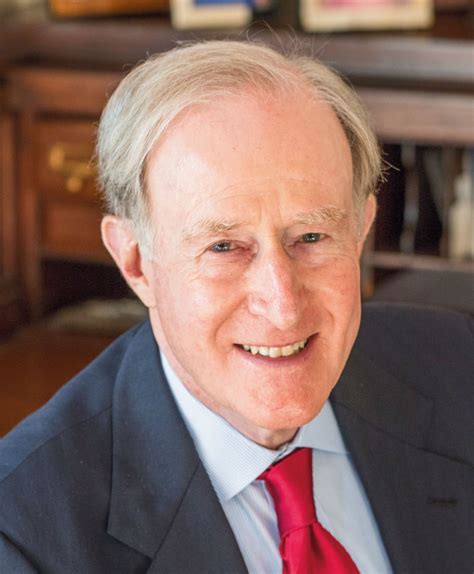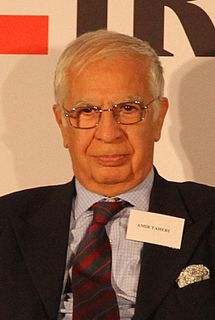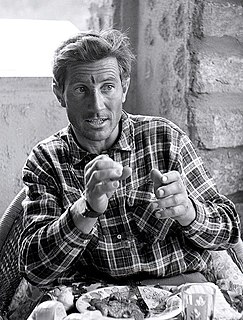Top 984 Nicomachean Ethics Quotes & Sayings - Page 16
Explore popular Nicomachean Ethics quotes.
Last updated on December 22, 2024.
When you hold out for high standards, people are impressed-but they don't always like you for it. Not everybody will be on your side in your struggle to do what's right and ethical. In fact, sometimes even you won't be on your side. You'll wrestle with inner conflict, torn between what you should do and what you want to do. You'll also aggravate other people. Seems when you walk the straight and narrow you always step on someone's toes. Don't count on the ethics of excellence to make you popular.
In struggling for human dignity the oppressed people of the world must not allow themselves to become bitter or indulge in hate campaigns. To retaliate with hate and bitterness would do nothing but intensify the hate in the world. Along the way of life, someone must have sense enough and morality enough to cut off the chain of hate. This can be done only by projecting the ethics of love to the center of our lives.
Third, and finally, the educated citizen has an obligation to uphold the law. This is the obligation of every citizen in a free and peaceful society--but the educated citizen has a special responsibility by the virtue of his greater understanding. For whether he has ever studied history or current events, ethics or civics, the rules of a profession or the tools of a trade, he knows that only a respect for the law makes it possible for free men to dwell together in peace and progress.
No one can learn tolerance in a climate of irresponsibility, which does not produce democracy. The act of tolerating requires a climate in which limits may be established, in which there are principles to be respected. That is why tolerance is not coexistence with the intolerable. Under an authoritarian regime, in which authority is abused, or a permissive one, in which freedom is not limited, one can hardly learn tolerance. Tolerance requires respect, discipline, and ethics.
The other side of my work is political disappointment - the realization that we are living in an unjust world. "Blood is being spilled in the merriest way, as if it was champagne," Dostoevsky says. That raises the problem of justice, what it might mean in an unjust world and whether there can be an ethics and a political practice that would be able to face and face down the injustice of the present. How might we begin to think about that?
Legal ethics is a misnomer ... lawyers conducting themselves legally are not necessarily conducting themselves morally ."...and ..."The zero sum nature of the legal system, combined with the universal adoption of zealotry as the marching orders of practioners and prosecutors, transforms the moral mission of the legal system from one of truth-seeking, storytelling, and justice, to one of fabrication, distortion, and manipulation in pursuit of victory. These victories, however, make us all losers.
The needs of a society determine its ethics, and in the Black American ghettos the hero is that man who is offered only the crumbs from his country's table but by ingenuity and courage is able to take for himself a Lucullan feast. Hence the janitor who lives in one room but sports a robin's-egg-blue Cadillac is not laughed at but admired, and the domestic who buys forty-dollar shoes is not criticized but is appreciated. We know that they have put to use their full mental and physical powers. Each single gain feeds into the gains of the body collective.
Change can only come from local citizens and politicians - it cannot be imposed by well-meaning foreigners - not least because a society like Afghanistan or Iraq is suspicious of outsiders and often resistant to change. I am not going to get drawn into the ethics of intervening in other countries. My concern is the practical question. Can you actually achieve change in this way? My guess is we can stop wars sometimes as in the Balkans and topple regimes - but that the other stuff - such as corruption is not within our power to effect and alter.
The more abstractly correct and hence powerful this idea will be, the more impossible remains its complete fulfillment as long as it continues to depend on human beings... If this were not so, the founders of religion could not be counted among the greatest men of this earth... In its workings, even the religion of love is only the weak reflection of the will of its exalted founder; its significance, however, lies in the direction which it attempted to give to a universal human development of culture, ethics, and morality.
If the subjectivist view hold true, thinking cannot be of any help in determining the desirability of any goal in itself. The acceptability of ideals, the criteria for our actions and beliefs, the leading principles of ethics and politics, all our ultimate decisions are made to depend upon factors other than reason. They are supposed to be matters of choice and predilection, and it has become meaningless to speak of truth in making practical, moral or esthetic decisions.
The science of logic never made a man reason rightly, and the science of ethics never made a man behave rightly. The most such sciences can do is to help us to catch ourselves up and check ourselves, if we start to reason or to behave wrongly; and to criticise ourselves more articulately after we have made mistakes.
For some days I quietly worked out in my own mind the metaphysics of Cosmic Unity. The more I thought about it, the more convinced I became that it was the living truth. It was logically incontrovertible. It provided for the first time a firm foundation for ethics. It offered mankind the radical change of heart and mind that was our only hope of peace at a time of desperate danger. Only one small problem remained. I must find a way to convert the world to my way of thinking.
One hundred years from now, I expect the Tatas to be much bigger than it is now. More importantly, I hope the Group comes to be regarded as being the best in India.. best in the manner in which we operate, best in the products we deliver, and best in our value systems and ethics. Having said that, I hope that a hundred years from now we will spread our wings far beyond India.
It has been said that in the New Testament doctrine is grace; and ethics is gratitude; and something is wrong with any form of Christianity in which, experimentally and practically, this saying is not being verified. Those who suppose that the doctrine of God's grace tends to encourage moral laxity are simply showing that, in the most literal sense, they do not know what they are talking about. For love awakens love in return; and love, once awakened, desires to give pleasure.
The Christian view that all intercourse outside marriage is immoral was, as we see in the above passages from St. Paul, based upon the view that all sexual intercourse, even within marriage, is regrettable. A view of this sort, which goes against biological facts, can only be regarded by sane people as a morbid aberration. The fact that it is embedded in Christian ethics has made Christianity throughout its whole history a force tending towards mental disorders and unwholesome views of life.
The question is, when so many others cut corners, shave the truth, self-deal, believe in the fast buck, and follow the crowd along the low road of least resistance, can we even afford to travel the high road of ethical behavior? Frankly, we can't afford anything else. Any other competitive angle is a pure crapshoot in today's business world. Companies with shaky ethics and shabby standards will be crippled as they try to compete in our changing world.
In contemporary society secular humanism has been singled out by critics and proponents alike as a position sharply distinguishable from any religious formulation. Religious fundamentalists in the United States have waged a campaign against secular humanism, claiming that it is a rival "religion" and seeking to root it out from American public life. Secular humanism is avowedly non-religious. It is a eupraxsophy (good practical wisdom), which draws its basic principles and ethical values from science, ethics, and philosophy.
Market forces have no intrinsically moral direction, which is why, before he wrote The Wealth of Nations, Adam Smith wrote The Theory of Moral Sentiments. Ethics should precede economics. But it doesn't have to. . . . We know this because we've seen the results of capitalism without conscience: the pollution of the air we breathe, the water we drink, and the food we eat; the endangerment of workers; and the sale of dangerous products - from cars to toys to drugs. All in pursuit of ever-greater profits.
People ask, 'Is the science going to run ahead of the ethics?' I don't think that's always the problem. I think it's that the science runs ahead of the politics. Bioethics can alert people to something coming down the road, but it doesn't mean policy and politicians are going to pay attention. They tend to respond when there's an immediate crisis. The job of the ethicist, in some ways, is to warn or be prophetic. You can yell loudly, but you can't necessarily get everybody to leave the cinema, so to speak.
The legal system doesn't always serve as a good guide for your conscience. You can step way over the ethical line and still be inside the law. The same thing goes for rules, policies and procedures - you know, the organization's "internal laws." You can "go by the book" and still behave unethically. Still not move beyond mediocrity. High standards-the ethics of excellence-come to life through your basic values, your character, integrity and honesty. Obeying the law is the bare minimum.
While our managers debated what steps to take to address the sales and cash-flow crisis, I began to lead week-long employee seminars in what we called Philosophies. We'd take a busload at a time to places like Yosemite or the Marin Headlands above San Francisco, camp out, and gather under the trees to talk. The goal was to teach every employee in the company our business and environmental ethics and values.
To me, God is Truth and Love; God is ethics and morality: God is fearlessness. God is the source of Light and Life and yet He is above and beyond all these. God is conscience... He is a personal God to those who need His personal presence. He is embodied to those who need His touch. He is the purest essence. He simply is to those who have faith. He is all things to all men.
Still, even the most admirable of atheists is nothing more than a moral parasite, living his life based on borrowed ethics. This is why, when pressed, the atheist will often attempt to hide his lack of conviction in his own beliefs behind some poorly formulated utilitarianism, or argue that he acts out of altruistic self-interest. But this is only post-facto rationalization, not reason or rational behavior.
In later years, when I started working in police ethics, I was professionally drawn back to the topic but as well was better able to see two sides to loyalty - its importance for certain central human relations such as friendships, but also its corruptibility in the sense that loyalty could be invoked against other moral constraints: it sometimes function as something of a moral Trojan horse, undermining other moral considerations.
Mysticism has often been misunderstood as the attempt to escape this simple, phenomenal world to a more pure existence in heaven beyond. This is not mysticism, but Gnosticism. Biblical mysticism is the attempt to exit 'this world' to an alternative reality that pervades the old order. Its goal is to jettison the mind-set that says 'greed is good,' selfishness is normal,' and 'killing is necessary.' Mysticism in biblical terms is not escapism, as so many have caricatured it, but a fight for ethics and social change.
What little recognition the idea of obligation to the public obtains in modern morality, is derived from Greek and Roman sources, not from Christian; as, even in the morality of private life, whatever exists of magnanimity, high-mindeness, personal dignity, even the sense of honour, is derived from the purely human, not the religious part of our education, and never could have grown out of a standard of ethics in which the only worth, professedly recognized, is that of obedience.
How many attractions for us have our passing fellows in the streets, both male and female, which our ethics forbid us to express, which yet infuse so much pleasure into life. A lovely child, a handsome youth, a beautiful girl, a heroic man, a maternal woman, a venerable old man, charm us, though strangers, and we cannot say so, or look at them but for a moment.
The basis for the ethics of the Sermon on the Mount is not what works but rather the way God is. Cheek-turning is not advocated as what works (it usually does not), but advocated because this is the way God is - God is kind to the ungrateful and the selfish. This is not a stratagem for getting what we want but the only manner of life available, now that, in Jesus, we have seen what God wants. We seek reconciliation with the neighbor, not because we feel so much better afterward, but because reconciliation is what God is doing in the world through Christ.
The axioms of physics translate the laws of ethics. Thus, "the whole is greater than its part;" "reaction is equal to action;" "the smallest weight may be made to lift the greatest, the difference of weight being compensated by time;" and many the like propositions, which have an ethical as well as physical sense. These propositions have a much more extensive and universal sense when applied to human life, than when confined to technical use.
Everybody has questioned my heart, questioned my training ethics, this and that, but I never did something as cowardly as to take any sports-enhancement drug...That's one thing no one can ever say about me, you know? That I was a coward and took sports-enhancement drugs, because I was afraid I was going to get my a** kicked in front of millions of people. So anybody out there who said I never had no heart, at least I wasn't a coward.
The great question for our time is, how to make sure that the continuing scientific revolution brings benefits to everybody rather than widening the gap between rich and poor. To lift up poor countries, and poor people in rich countries, from poverty, to give them a chance of a decent life, technology is not enough. Technology must be guided and driven by ethics if it is to do more than provide new toys for the rich.
Failure to summon forth the courage to risk a nondogmatic and nonevasive stance on such crucial existential matters can also blur our ethical vision. If our actions in the world are to stem from an encounter with what is central in life, they must be unclouded by either dogma or prevarication. Agnosticism is no excuse for indecision. If anything, it is a catalyst for action; for in shifting concern away from a future life and back to the present, it demands an ethics of empathy rather than a metaphysics of fear and hope.
Let your Neshuma (soul) be the real inspiration. You have a soul, you have a spirit, don't lock it in a box and forget it... Let's make this a better world... We dare not assume that the next century will have less hatred or murders than the past centuries. How can we? Are the weapons of tomorrow less harmful? Are the leaders more dependable? Are our peace treaties more durable? Are our ethics more honorable? Time is running out... We must hurry.
He is not a true man of science who does not bring some sympathy to his studies, and expect to learn something by behavior as well as by application. It is childish to rest in the discovery of mere coincidences, or of partial and extraneous laws. The study of geometry is a petty and idle exercise of the mind, if it is applied to no larger system than the starry one. Mathematics should be mixed not only with physics but with ethics; that is mixed mathematics. The fact which interests us most is the life of the naturalist. The purest science is still biographical.
I believe that pity is a law like justice, and that kindness is a duty like uprightness. That which is weak has a right to the kindness and pity of that which is strong. In the relations of man with the animals...there is a great ethic, scarcely perceived as yet, which will at length break through into the light, and which will be the corollary and the complement to humans ethics. Are there not here unsounded depths for the thinker? Is one to think oneself mad because one has the sentiment of universal pity in one's heart?
I look to Islamic ethics to find something that can provide the basis for shared values with other traditions, and ultimately universal values. This ties into the point I made in a book, 'The Quest for Meaning', that the only way for values to be universal is if they are shared universal values. My main point is, in this quest for value the aim is not to express your distinctness from others, but about being able to contribute to the discussion of universal value.
I suppose the most important thing, the heaviest single factor in one's life, is whether one's born male or female. In most societies it determines one's expectations, activities, outlook, ethics, manners - almost everything. Vocabulary. Semiotic usages. Clothing. Even food. Women... women tend to eat less... It's extremely hard to separate the innate differences from the learned ones. Even where women participate equally with men in the society, they still after all do all the childbearing, and so most of the child-rearing.
Though we think intrinsic desires tend to be pretty stable, we do not think they imply anything like the amount of predictability in behavior that traditional virtue ethics requires for someone to have a one-word-in-English character trait such as "benevolence". Other things being equal, a person with more of a desire for other people's wellbeing will do more for other people's wellbeing, but things are almost never equal.
We can speak of politics, ethics, and in this way, speak about the world. But at the same time, it's always in a way that is totally nebulous and abstracted, this way of thinking about reality. And that's why I write the way I do - it's an almost immortal way to show dependence on the biological, the political, the moral parts of us. I say immortal because we now have to find new formats, new eloquences, and resolve within ourselves this "constructed" life, a life that is incomplete, imperfect.
Control is not leadership; management is not leadership; leadership is leadership is leadership. If you seek to lead, invest at least 50% of your time leading yourself-your own purpose, ethics, principles, motivation, conduct. Invest at least 20% leading those with authority over you and 15% leading your peers. If you don't understand that you work for your mislabeled 'subordinates,' then you know nothing of leadership. You know only tyranny.
It doesn't matter if it's jazz or not. It's about how we listen, how we interact, how we guide our attention when we're listening, and how we can refine what we're doing musically. Also how we can create our own music, and what opportunities that can bring us, as creative musicians. And then insisting that musicians put themselves through an intellectually rigorous process, which involves a lot of reading and writing, while insisting that music scholars think about ethics.
The very power of [textbook writers] depends on the fact that they are dealing with a boy: a boy who thinks he is ‘doing’ his ‘English prep’ and has no notion that ethics, theology, and politics are all at stake. It is not a theory they put into his mind, but an assumption, which ten years hence, its origin forgotten and its presence unconscious, will condition him to take one side in a controversy which he has never recognized as a controversy at all.
Whenever I ask Siri for directions or a recommendation, I also ask her a trick question. Her answers are usually wacky. She scolds me for cursing, which I love, but she has no problem with ethics. If I say, 'Remind me to rob a bank at 3 P.M.,' she responds, 'Here's your reminder for today at 3 P.M.: Rob a bank. Shall I create it?'
Because of the oil-and-water relationship governments have cultivated between ethics and political economy, speaking in plain terms - spelling it out as it is - as become foreign to the public. So here goes: When government sports a surplus, this implies that the political pickpockets have stolen more funds than they can possibly dream of spending. The property is not theirs to keep! Conversely, when deficits are reported, this means that the kleptomaniacs have not been able to steal sufficient funds to cover their profligacy.
Peace is never long preserved by weight of metal or by an armament race. Peace can be made tranquil and secure only by understanding and agreement fortified by sanctions. We must embrace international cooperation or international disintegration. Science has taught us how to put the atom to work. But to make it work for good instead of for evil lies in the domain dealing with the principles of human dignity. We are now facing a problem more of ethics than of physics.
'Our parents' generation had it a lot tougher than we did. They had to live through the Depression, World War II, and then they had to, you know, try to pick up the pieces of their lives and bring up their children. And, it was a great example for us. I guess we grew up with a certain amount of the ethics our parents had, which is, you know: work hard, make your own way, be independent.
Islamic ethics is based on 'limits and proportions,' which means that the answer to an offensive cartoon is a cartoon, not the burning of embassies or the kidnapping of people designated as the enemy. Islam rejects guilt by association. Just as Muslims should not blame all Westerners for the poor taste of a cartoonist who wanted to be offensive, those horrified by the spectacle of rent-a-mob sackings of embassies in the name of Islam should not blame all Muslims for what is an outburst of fascist energy.
Ethics cannot be based upon our obligations toward people, but they are complete and natural only when we feel this Reverence for Life and the desire to have compassion for and to help all creatures insofar as it is in our power. I think that this ethic will become more and more recognized because of its great naturalness and because it is the foundation of a true humanism toward which we must strive if our culture is to become truly ethical.
The mistake made by all previous systems of ethics has been the failure to recognize that life as such is the mysterious value with which they have to deal. All spiritual life meets us within natural life. Reverence for life, therefore, is applied to natural life and spiritual life alike. In the parable of Jesus, the shepherd saves not merely the soul of the lost sheep but the whole animal. The stronger the reverence for natural life, the stronger grows also that for spiritual life.
The formation of character in young people is educationally a different task from, and a prior task to, the discussion of the great, difficult, ethical controversies of the day. First things first. And planting the ideas of virtue, of good traits in the young, comes first. In the moral life, as in life itself, we take one step at a time. Every field has its complexities and controversies. And so does ethics. And every field has its basics. So too with values.
Taking care of our planet is like taking care of our houses. Since we human beings come from Nature, there is no point in our going against nature, which is why I say the environment is not a matter of religion or ethics or morality. These are luxuries, since we can survive without them. But we will not survive if we continue to go against nature.
For me, the value of a climb is the sum of three inseparable elements, all equally important: aesthetics, history, and ethics. Together they form the whole basis of my concept of alpinism. Some people see no more in climbing mountains than an escape from the harsh realities of modern times. This is not only uninformed but unfair. I don’t deny that there can be an element of escapism in mountaineering, but this should never overshadow its real essence, which is not escape but victory over your own human frailty.
The denial of any distinction between foreseen and intended consequences, as far as responsibility is concerned, was not made by Sidgwick in developing any one 'method of ethics'; he made this important move on behalf of everybody and just on its own account; and I think it plausible to suggest that this move on the part of Sidgwick explains the difference between old-fashioned Utilitarianism and the consequentialism, as I name it, which marks him and every English academic moral philosopher since him.
Self-discipline, although difficult, and not always easy while combating
negative emotions, should be a defensive measure. At least we will be able to prevent the advent of negative conduct dominated by negative emotion. That is 'shila', or moral ethics. Once we develop this by familiarizing ourselves with it, along with mindfulness and conscientiousness, eventually that pattern and way of life will become a part of our own life.
Socrates claimed famously that one never loses by doing the right thing. Stephen Post and his contributors claim, a little less boldly, that at least the generous will, probably, stay healthy—and, improving on Socrates, they support this claim with careful empirical science, impressive for its comprehensive detail. Here ethics and religion join science and enjoin us to be more caring and healthy. A seminal work, with an urgent message.
Just why is Yosemite climbing so different ? Why does it have techniques, ethics and equipment all of its own ? The basic reason lies in the rock itself. Nowhere else in the world is the rock so exfoliated, so glacier-polished and so devoid of handholds. All of the climbing lines follow vertical crack systems. Every piton crack, every handhold is a vertical one. Special techniques and equipment have evolved through absolute necessity.
My question is about the head of the Office of Government Ethics. Is he acting ethically when he sent out nine tweets praising Donald Trump saying that his plan was brilliant. How did he come to that conclusion? And how does come to his current conclusions having never done an investigation and never looked at the paperwork in the point where he can actually come to a reasonable conclusion?I think that's unethical.
It has been an obsession of human beings to create a hierarchy that places the human species on top and lumps all the "other animals" together beneath us. The resulting "speciesism" allows us to look upon animals as less deserving of all manner of rights and considerations than humans. To support this lower status, humans have argued that animals act instinctually; don't have souls; don't feel physical pain like we do; and lack self-consciousness, cognitive intelligence, emotional feelings, morality, and ethics.



















